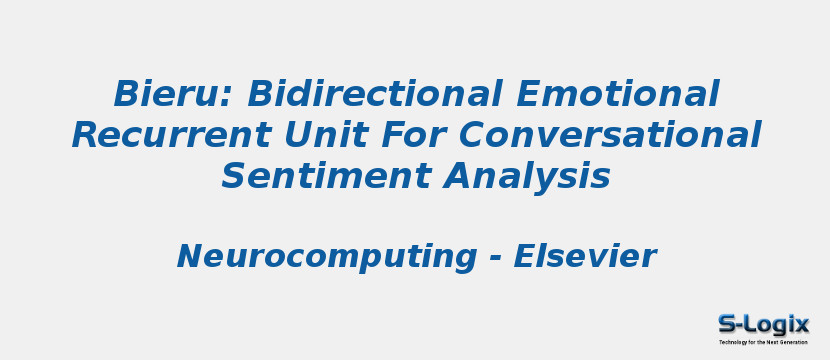Research Area: Machine Learning
Sentiment analysis in conversations has gained increasing attention in recent years for the growing amount of applications it can serve, e.g., sentiment analysis, recommender systems, and human-robot interaction. The main difference between conversational sentiment analysis and single sentence sentiment analysis is the existence of context information that may influence the sentiment of an utterance in a dialogue. How to effectively encode contextual information in dialogues, however, remains a challenge. Existing approaches employ complicated deep learning structures to distinguish different parties in a conversation and then model the context information. In this paper, we propose a fast, compact and parameter-efficient party-ignorant framework named bidirectional emotional recurrent unit for conversational sentiment analysis. In our system, a generalized neural tensor block followed by a two-channel classifier is designed to perform context compositionality and sentiment classification, respectively. Extensive experiments on three standard datasets demonstrate that our model outperforms the state of the art in most cases.
Keywords:
Author(s) Name: WeiLi,WeiShao,ShaoxiongJi,ErikCambria
Journal name: Neurocomputing
Conferrence name:
Publisher name: Elsevier
DOI: 10.1016/j.neucom.2021.09.057
Volume Information: Volume 467, 7 January 2022, Pages 73-82
